Assessment of neuroendocrine dysfunction following traumatic brain injury.
Por um escritor misterioso
Last updated 22 abril 2025

A screening protocol adapted for selected patients at risk for endocrine problems is described, and physicians should be aware of the importance of neuroendocrine dysfunction following TBI. Posttraumatic neuroendocrine pathology may be a clinically significant complication following traumatic brain injury TBI. Metabolic abnormalities are described after TBI in two cases. A 21 year old male injured in a motor vehicle accident admitted in a minimally responsive condition presented with fluctuating high sodium levels, undetectable serum testosterone, and depressed cortisol and thyroid function. Imaging revealed near complete avulsion of the pituitary stalk leading to panhypopituitarism. A 38 year old male admitted for occipital skull fractures and brain contusions presented with hypona tremia and low serum testosterone. Both patients required hormonal replacement and correction of electrolyte abnormalities. A screening protocol adapted for selected patients at risk for endocrine problems is described. While neuroendocrine screening is not advocated in all TBI patients, physicians should be aware of the importance of neuroendocrine dysfunction following TBI.
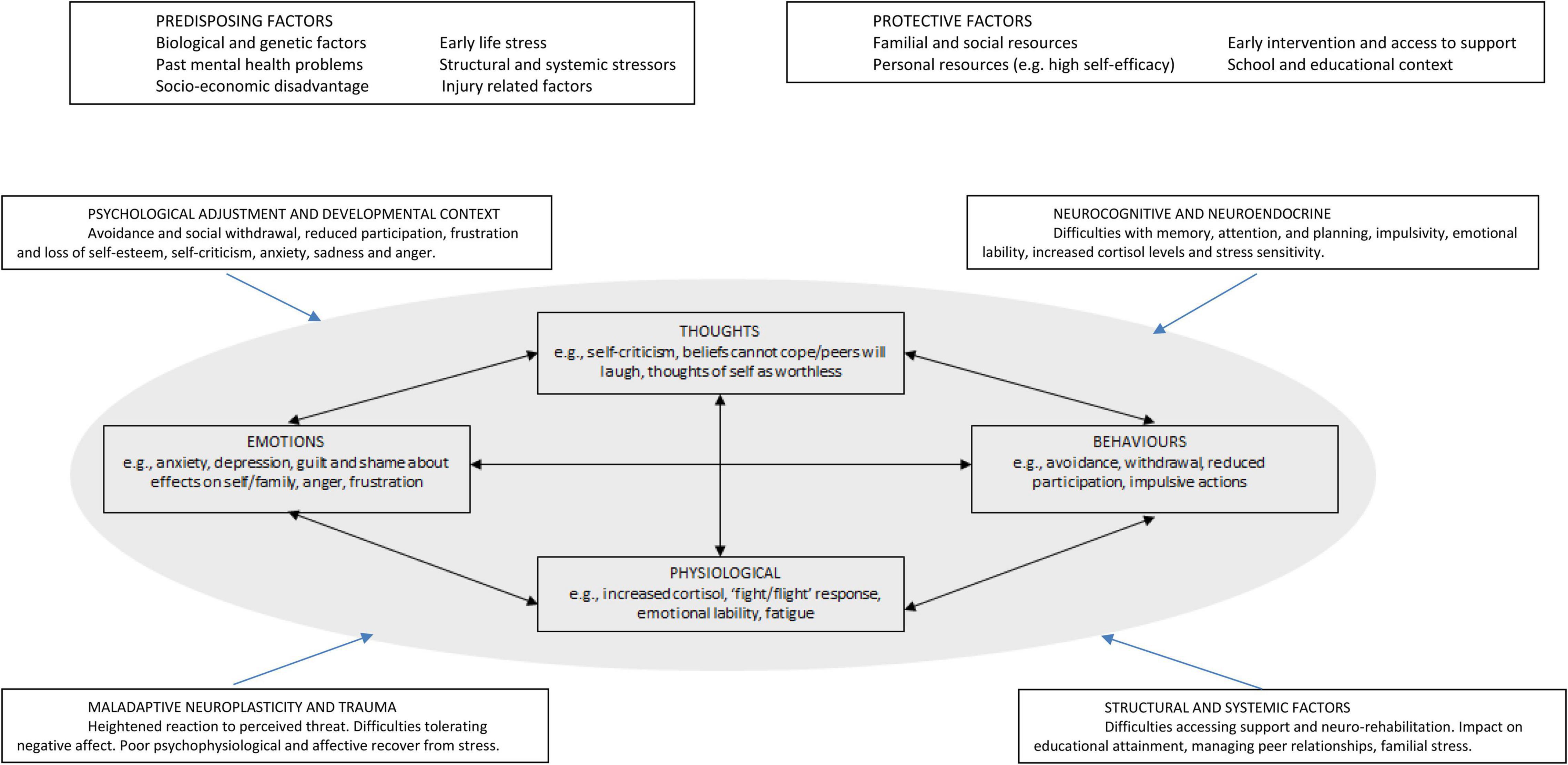
Frontiers Mood Disorders in Young People With Acquired Brain Injury: An Integrated Model

Traumatic brain injury: Pathology review: Video
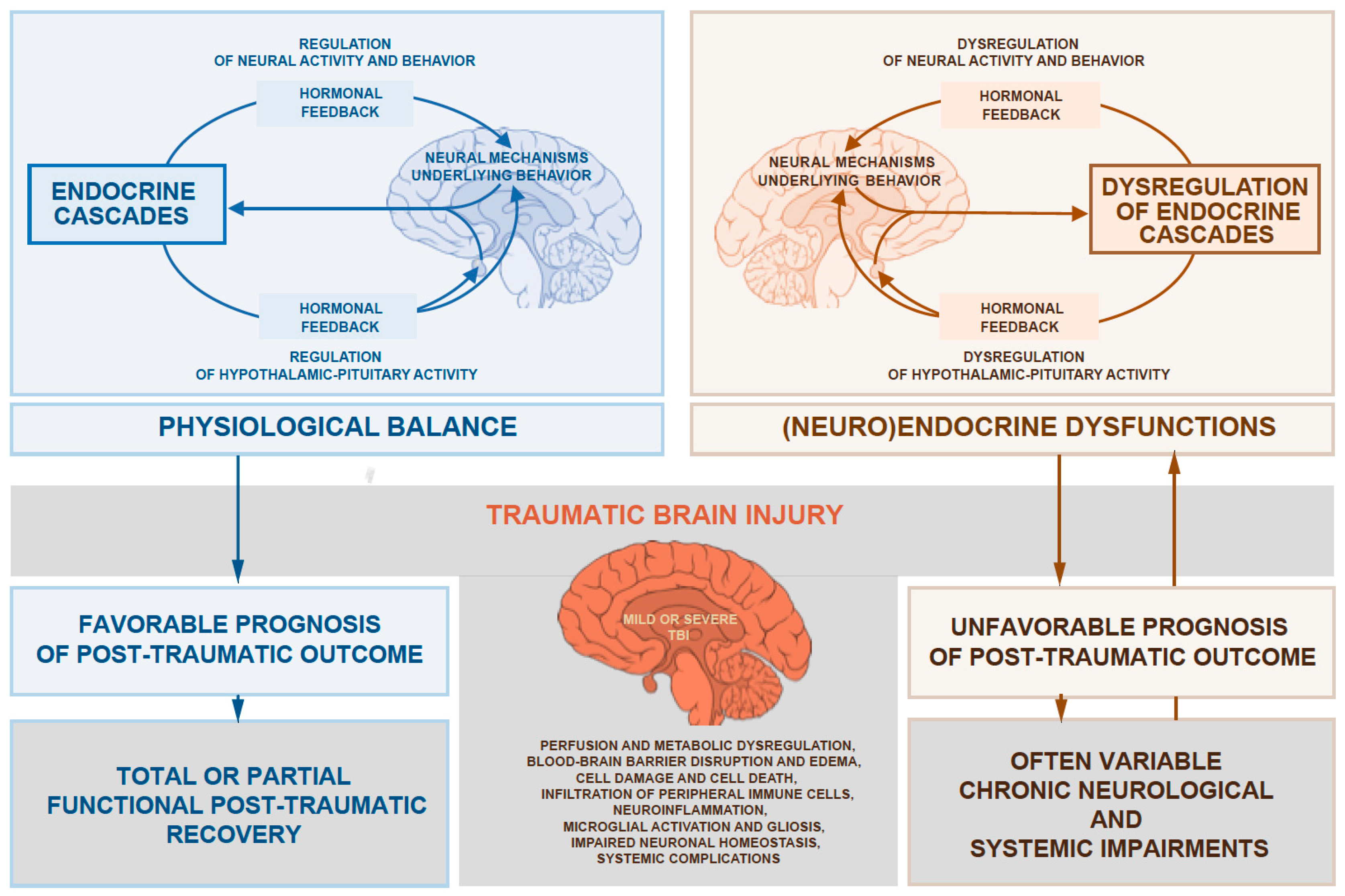
JCM, Free Full-Text

PDF) Traumatic Injury to the Brain and Endocrine Evaluation of the Anterior Pituitary a Year After the Event (The TRIBE Study)

Thyroid Disorders Following Hematopoietic Stem Cell Transplantation in Childhood: Impact of Conditioning Regimen on Thyroid Dysfunction, Volume Changes, and Occurrence of Nodules - Transplantation and Cellular Therapy, Official Publication of the American
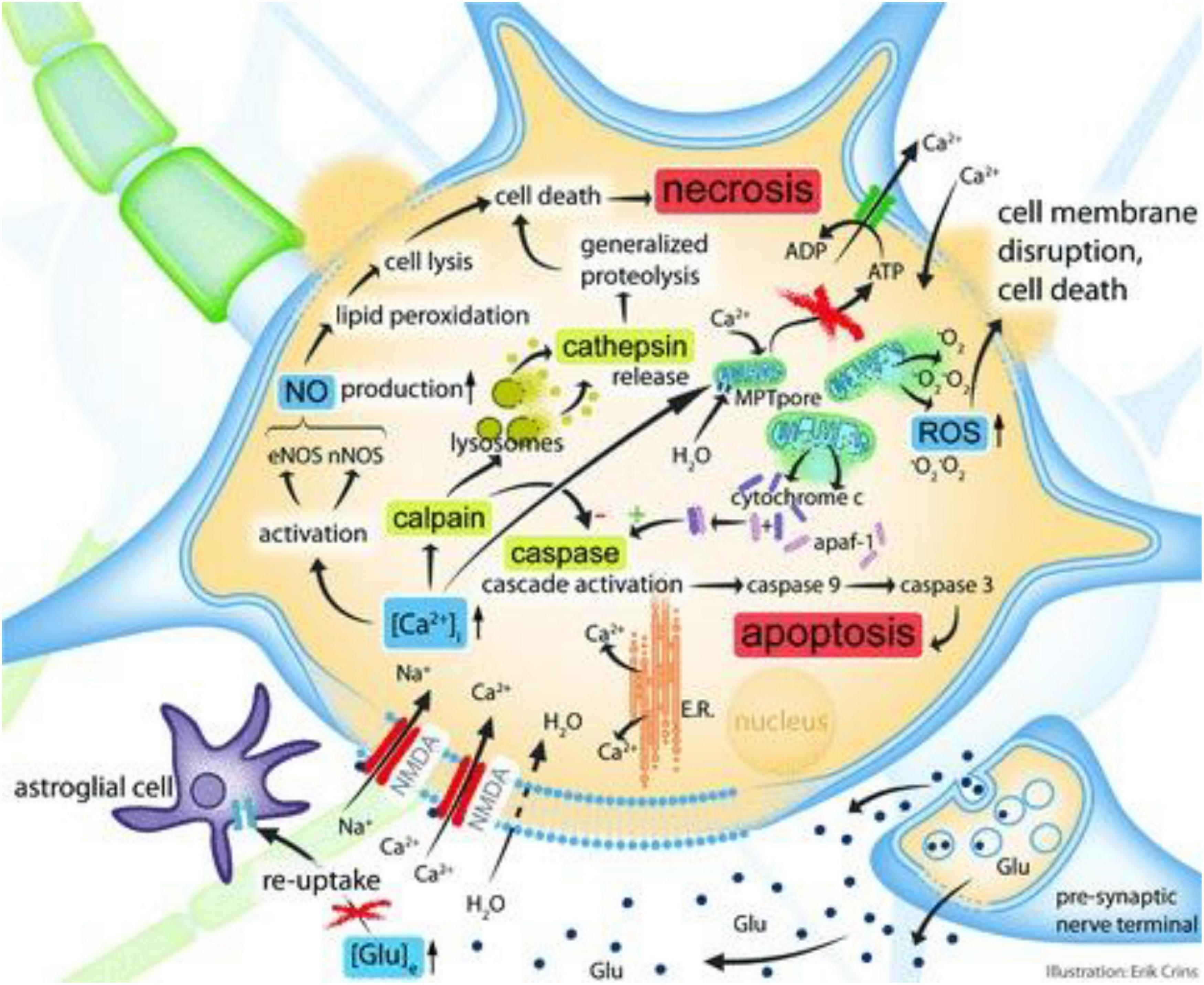
Frontiers The Outcome of Neurorehabilitation Efficacy and Management of Traumatic Brain Injury

Neuroendocrine disorders after traumatic brain injury
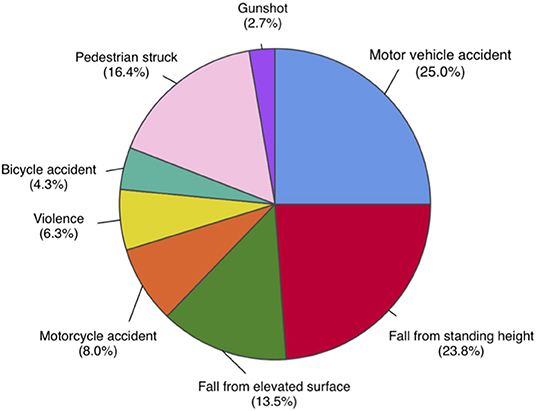
Frontiers Agitation Following Severe Traumatic Brain Injury Is a Clinical Sign of Recovery of Consciousness
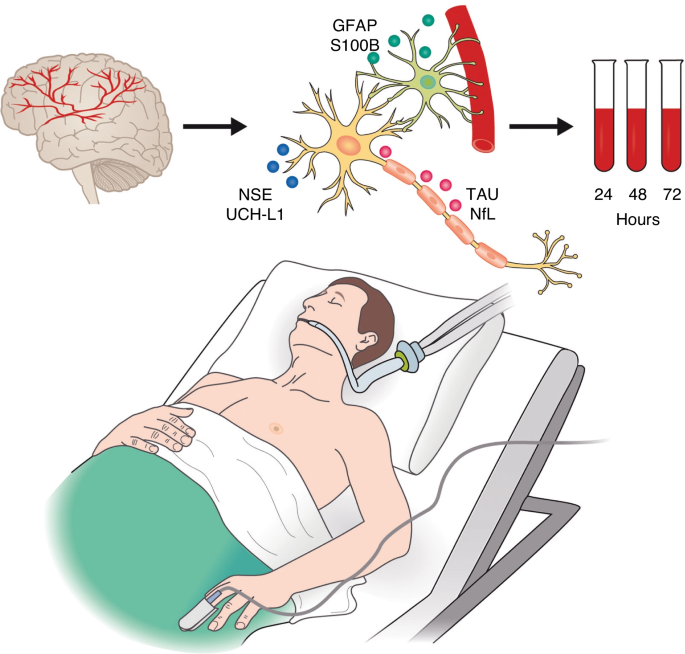
Brain Injury Biomarkers for Predicting Outcome After Cardiac Arrest, Critical Care
The screening and management of pituitary dysfunction following traumatic brain injury in adults: British Neurotrauma Group guidance
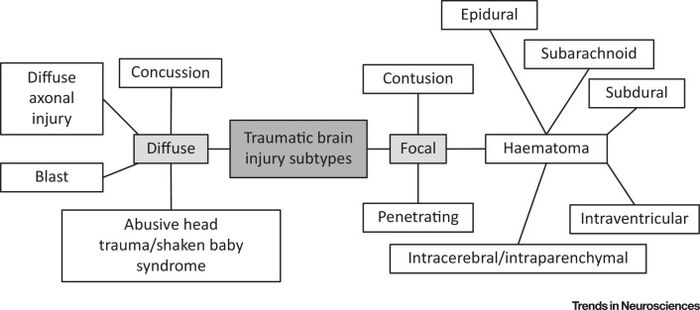
Classification of Traumatic Brain Injury - Physiopedia
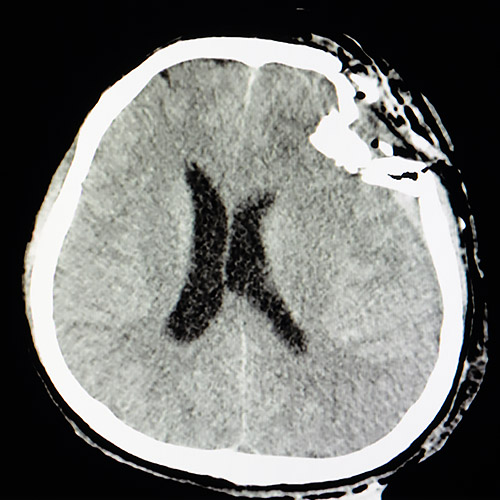
Neuroendocrine Testing and Therapy
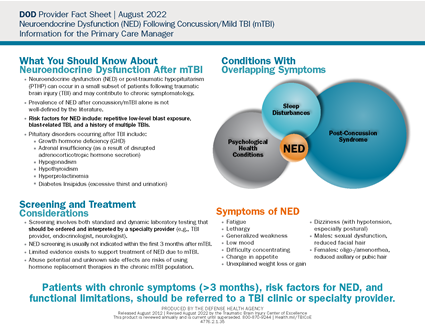
Neuroendocrine Dysfunction (NED) Following Concussion/Mild Traumatic Brain Injury (mTBI): Information for the Primary Care Manag
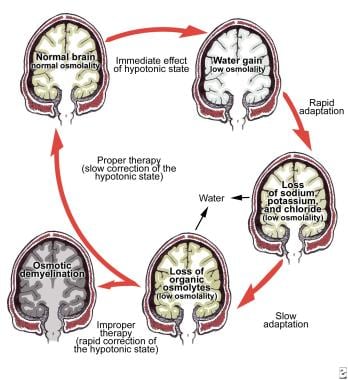
Post Head Injury Endocrine Complications Treatment & Management: Surgical Intervention, Consultations, Other Treatment
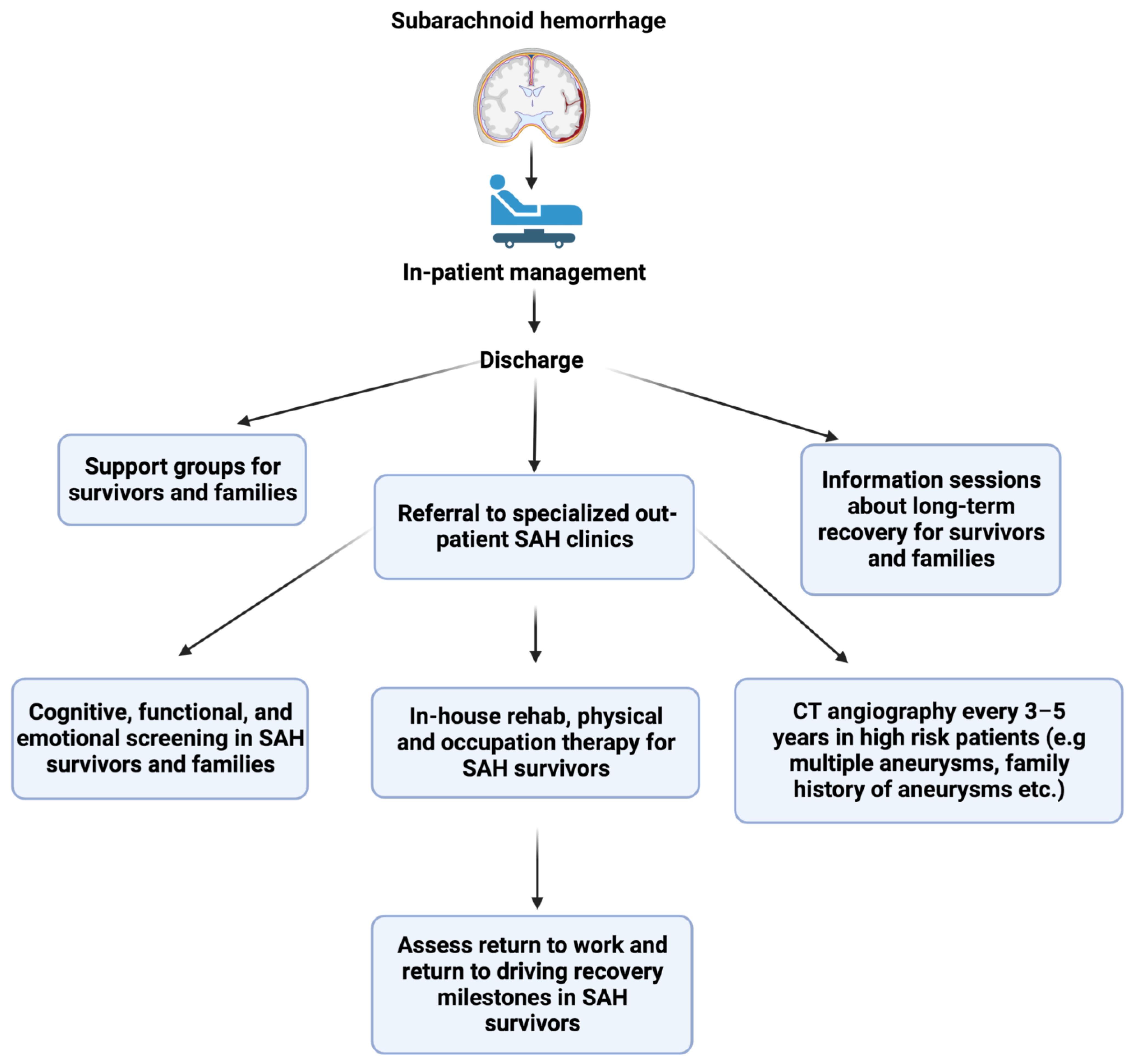
JVD, Free Full-Text
Recomendado para você
-
 brain test nível 29522 abril 2025
brain test nível 29522 abril 2025 -
 Brain Test Level 295 Best Solution Brain Test Solution Walkthrough22 abril 2025
Brain Test Level 295 Best Solution Brain Test Solution Walkthrough22 abril 2025 -
 Brain Test Level 295 Which Way Leads To The Exit?22 abril 2025
Brain Test Level 295 Which Way Leads To The Exit?22 abril 2025 -
 Brain test level 295 solução passo a passo22 abril 2025
Brain test level 295 solução passo a passo22 abril 2025 -
Download free Brain Test 3 1.68.5 APK for Android22 abril 2025
-
 how to beat level 295 on brain test 2|TikTok Search22 abril 2025
how to beat level 295 on brain test 2|TikTok Search22 abril 2025 -
Gussa hua Anthony! #ChorrpoliceReels #ChorrPolice #cartoons #kids22 abril 2025
-
 Brain Test Level 295 296 297 298 299 300 301 302 303 304 305 Walkthrough Solution22 abril 2025
Brain Test Level 295 296 297 298 299 300 301 302 303 304 305 Walkthrough Solution22 abril 2025 -
 Mancala Online on the App Store22 abril 2025
Mancala Online on the App Store22 abril 2025 -
Brain Test Game Level 287 to 304 Walkthrough, Brain Test Game Level 287 to 304, Brain Test Level 287, 288, 289, 290, 291, 292, 293, 294, 295, 296, 297, 298, 299, 300, 301, 302, 303, 304 Walkthrough, By Dangamevideos22 abril 2025
você pode gostar
-
 Dvd Esse Jogo é Para Dois em Promoção na Americanas22 abril 2025
Dvd Esse Jogo é Para Dois em Promoção na Americanas22 abril 2025 -
 One Punch Man BluRay 1080p Dual Áudio Completo22 abril 2025
One Punch Man BluRay 1080p Dual Áudio Completo22 abril 2025 -
 Estas são as 10 Akuma no Mi mais inúteis em One Piece - Critical Hits22 abril 2025
Estas são as 10 Akuma no Mi mais inúteis em One Piece - Critical Hits22 abril 2025 -
 Numbers / Alphabet Lore 14-in-1 Numbers Combination 498 Pieces Creative Toys22 abril 2025
Numbers / Alphabet Lore 14-in-1 Numbers Combination 498 Pieces Creative Toys22 abril 2025 -
 Leopard Fruit – RzFruits22 abril 2025
Leopard Fruit – RzFruits22 abril 2025 -
__Watcher(1).jpg) Watcher (The) - Original Movie Poster22 abril 2025
Watcher (The) - Original Movie Poster22 abril 2025 -
 Peaches”, da trilha-sonora de “Super Mario Bros.”, ganha clipe22 abril 2025
Peaches”, da trilha-sonora de “Super Mario Bros.”, ganha clipe22 abril 2025 -
 Best Arena 12 decks Best Clash Royale decks for challenges22 abril 2025
Best Arena 12 decks Best Clash Royale decks for challenges22 abril 2025 -
 Adesivo de Parede Frase Nao faca drama, faca cafe - Arte Destaque22 abril 2025
Adesivo de Parede Frase Nao faca drama, faca cafe - Arte Destaque22 abril 2025 -
 MAX LEVEL HACKER UNLOCKED? // Roblox Code simulator22 abril 2025
MAX LEVEL HACKER UNLOCKED? // Roblox Code simulator22 abril 2025


